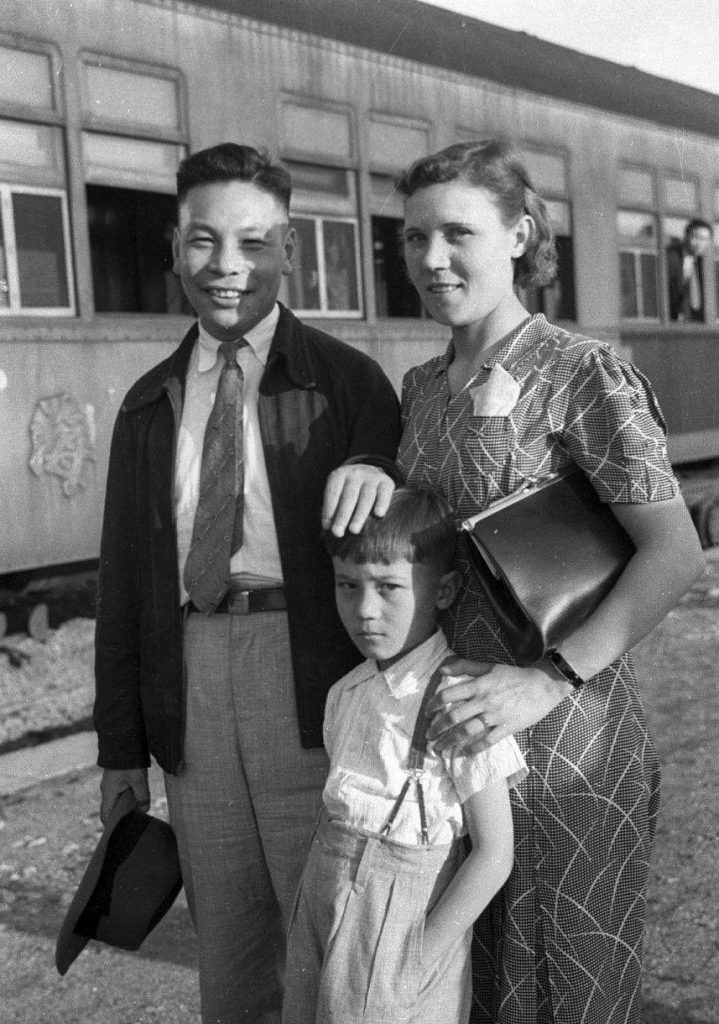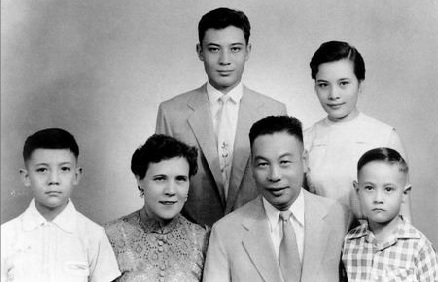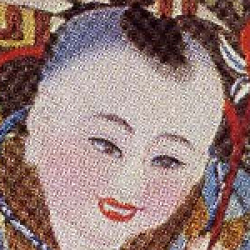
Faina Chiang (nee Vahaleva) and Chiang Ching-kuo were one of the few AMWF couples known as a First Lady and President. But while researching this couple for the blog, I found myself continually drawn to the story of Faina herself, for reasons such as this quote from the Taipei Times:
Chiang Fang-liang lived her life with the weighty crown of first lady. While she never enjoyed the glamour associated with the title, she will be remembered for her stoicism.
Faina and Chiang met and married in the former Soviet Union in the 1930s. In 1937, Stalin permitted Chiang to return to China, so the couple moved there. As many of us in international and intercultural marriages know, it can be tough to settle in a foreign country. Yet as the Taipei Times noted, “the Russian bride followed her husband to China.” They added:
Perhaps Vahaleva had thought little of the different language, culture and traditions in China that would no doubt be a great barrier to her, or perhaps her love for her husband gave her all the courage needed.
Reminds me of how many Western women I’ve known have chosen to move to Asia to be with their boyfriends and husbands, despite the challenges.

Speaking of which, Faina encountered another one all too familiar to me – the parental objection, as described in the Taipei Times:
Chiang Kai-shek was reportedly at first dismayed to have a Communist Russian daughter-in-law. But after the two met, Vahaleva — who has been described as possessing the virtues of a traditional Chinese woman to a greater degree than a Chinese woman — soon won the approval of her father-in-law and was given the name Fang-liang.
She even learned Ningbo dialect and forged a good relationship with her mother-in-law, Mao Fumei (Chiang Ching-kuo’s mother and Chiang Kai-shek’s first wife).

As first lady, Faina rarely appeared in public, preferring a simple life behind the scenes:
She was used to doing all the household chores herself instead of employing servants. She would ask for her husband’s approval for everything. Private household expenses, such as water and electricity bills, as well as salaries for servants, were all paid directly by Fang-liang from Chiang Ching-kuo’s paycheck, instead of being deducted as public expenses.
At the same time, Faina never entirely lost her foreign customs, as the LA Times reported:
…she often spoke Russian with her husband and preserved several traditions from her homeland.
“Faina regularly greeted her husband at the airport with a hug and a kiss, to the wonder and embarrassment of Chinese spectators,” Jay Taylor wrote in his biography of Chiang Ching-kuo, “The Generalissimo’s Son,” published in 2000.
She braved many tumultuous years in China with her husband, reflected in the fact that three of her four children were born in different cities in China.

After Chiang Ching-kuo died, Fang-liang reportedly asked her second son Hsiao-wu, “I only have three sons, why are there reports saying I have five?”
Hsiao-wu, who had publicly reconciled with his half-brother Chang Hsiao-yan (章孝嚴/John Chang) chose to respond with silence.
On top of that, she suffered the loss of her three sons in the years after her husband passed away. The China Daily called her “the loneliest woman in Taipei”:
She had no real friends and no descendants close to her. Her closest relatives all lived overseas and even after her death, her only daughter was unable to attend the funeral because she herself was seriously ill.
How tragic.

Faina died of complications from lung cancer on December 15, 2004 at the age of 88. Even though she eschewed the public spotlight, she’ll always be remembered for her hard work, modesty and devotion to her family.

